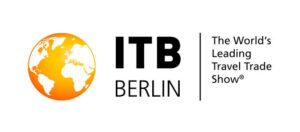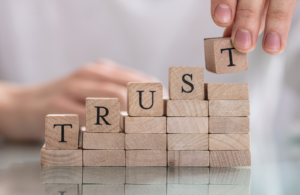
Carbon Literacy vs Greenwashing: What The Travel Industry Needs To Know
The travel industry is at an important crossroads. As consumers become more aware of the environmental issues relating to travel, companies must become more mindful of how they market their products and services. Most travel businesses do not have their hand in the sand about the impact their products and services have on the environment. The global tourism industry has a huge carbon footprint, accounting for 8% of global greenhouse gas emissions. We as an industry have work to do to reduce the negative impact we have on the planet.
Unfortunately, some travel providers have resorted to greenwashing instead of tackling issues relating to the environment in a meaningful way. Consequently, travel providers need to think carefully about the genuine impact of their sustainability initiatives—an important distinction between carbon literacy and greenwashing needs to be made.
What is Carbon Literacy?
Carbon literacy is the ability to understand and communicate the greenhouse gas emissions impacts of human activities and make decisions that reduce emissions. It includes understanding climate change, its causes and effects and workable solutions. Carbon literacy also involves being aware of how our individual actions contribute to greenhouse gas emissions and climate change and taking action to reduce our impact. This is why travel businesses and consumers need to be carbon literate to make informed decisions about the products and services they purchase.
What is Greenwashing?
Greenwashing is a term used to describe the misleading or deceptive use of green marketing by companies. Greenwashing can take many forms but often includes:
- Making false claims about a product or service’s environmental benefits
- Exaggerating the environmental benefits of a product or service
- Using misleading images or logos
Greenwashing is a real problem because it misleads consumers and gives companies an undeserved green reputation. The consequences are serious, as it also undermines trust in travel companies and makes it harder for people to know what they can do to help the environment.
Fortunately, there are ways for travellers to avoid being misled by greenwashing. When considering a purchase, people should take the time to research the company and their green credentials. Travellers should be wary of exaggerated claims and look for specific details about what the product or service does to help the environment. Consumers have the power to vote with their wallets, so the more they choose genuinely green providers, the more travel companies will invest in high-impact sustainability initiatives.
How to Integrate Carbon Literacy Into Your Travel Business
As a business, there are a few key ways you can implement carbon literacy into your operations. First, get an emissions baseline of your organisation—this will give you a starting point to measure your progress going forward. Once you have this information, start implementing some energy efficiency strategies within your company. This could involve using LED lights, solar power, or other renewable energy sources.
Additionally, consider ways to reduce waste and encourage employees to carpool or use public transport. Finally, think about how you can communicate your commitment to carbon literacy with customers and clients. This could be done through social media, marketing campaigns, or PR efforts. It’s important to note that these suggestions are by no means exhaustive—they are just a fraction of what your company can do to integrate carbon literacy into your business. For more information, we recommend attending ABTA’s upcoming Carbon Literacy for Travel and Tourism event or digesting the World Economic Forum’s insightful sustainability resources.
Final Thoughts
All businesses operating in travel and tourism must prioritise carbon literacy and avoid greenwashing at all costs, not least because consumers can increasingly see through greenwashing tactics. But there is one overarching reason why travel providers should prioritise carbon literacy. Due to the enormous impact travel and tourism has on the environment, we as an industry must do all we can to reduce our footprint.

Innovative Travel Berlin – Will Plummer
Innovative Travel Berlin- Will Plummer Berlin is a city that I absolutely love, and it was

The Role of Trust in Travel, beyond B2C
The Role of Trust in Travel, beyond B2C Building a loyal client base through gaining trust

The travel industry is finally pivoting towards trust accounts
The UK’s top package holiday companies have said that it is “inevitable” that the trade will have


